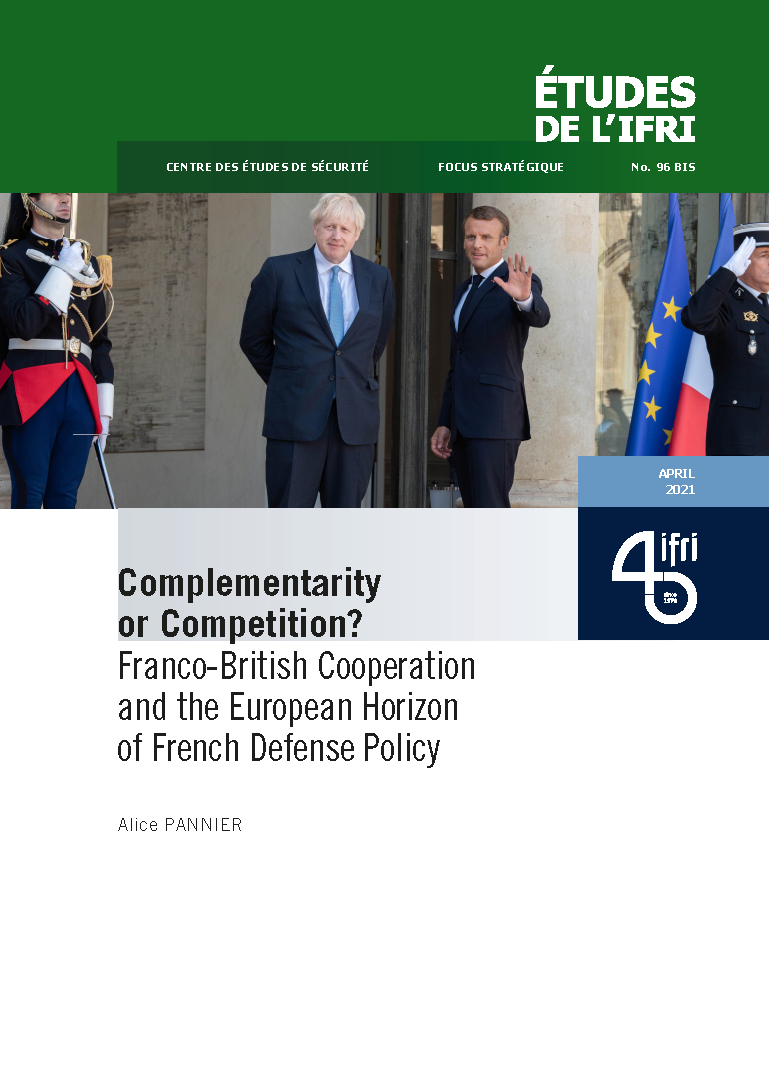Complementarity or Competition? Franco-British Cooperation and the European Horizon of French Defense Policy

What does future hold for the Franco-British defense partnership after Brexit?

France and the United Kingdom have, for long, enjoyed a close defense relationship, thanks in part to their analogous strategic cultures. The 2010 Lancaster House treaties built on this proximity to expand cooperation in the fields of nuclear weapons, force projection, interoperability and industrial integration. In spite of genuine progress in the first years following the treaties, the Franco-British strategic partnership has had to face two pitfalls: on the one hand, Brexit and its political consequences for the United Kingdom, and, on the other hand, President Macron’s attempt to revive European defense and Franco-German cooperation. The tenth anniversary of Lancaster House should offer the opportunity to rethink the convergence between bilateral cooperation and the resolutely European horizon of French defense policy.
This content is available in French: Complémentarité ou concurrence ? La coopération franco-britannique et l'horizon européen de la défense française.
Download the full analysis
This page contains only a summary of our work. If you would like to have access to all the information from our research on the subject, you can download the full version in PDF format.
Complementarity or Competition? Franco-British Cooperation and the European Horizon of French Defense Policy
Related centers and programs
Discover our other research centers and programsFind out more
Discover all our analysesThe Franco-German Brigade and the Revival of European Defense
One thing has been clear since Donald Trump's return to the White House: the very existence of the European unification project is threatened. Unless it develops a sovereign defense policy to counter the war in Ukraine and the weakening of American security guarantees, the European Union will continue to see its internal cohesion and external attractiveness wane.
Taking the Pulse: Can Europeans Build Their Independent Extended Nuclear Deterrent?
Confronted with a U.S. disengagement and the Russian threat, Europeans are reconsidering their stance on nuclear deterrence. Given the capabilities of the French and British arsenals, can Europe develop an independent nuclear deterrent?

RAMSES 2024. A World to Be Remade
For its 42nd edition, RAMSES 2024 identifies three major challenges for 2024.
A Transatlantic Defense Industrial Base? Two Contrasting Views
The evolving landscape of global defense cooperation has brought the transatlantic relationship between the United States (US) and Europe into sharp focus. As geopolitical tensions rise and the threat environment becomes more complex, the question of how Europe can best ensure its security while navigating its relationship with the United States has become paramount. This double feature report offers two contrasting views on the dynamics of US-Europe defense industrial relations, highlighting the challenges and opportunities that lie ahead for both parties.










